Buddha’s Advice for Politicians? 10 Virtues of a Leader; “I have done what will not lead to future distress”
Shakyamuni Buddha’s advice for world leaders remains relevant today — more than 2500 years after he taught various kings and leaders about politics, leadership and governance. Buddha often taught kings and leaders in his life, including famous King Bimbisara, who offered Shakyamuni Buddha his entire kingdom.
Today, more than ever, Buddha’s advice seems to be helpful guidance for world leaders and even business leaders. He advises a king, for example, in the Pabbatopama Sutta:
“If, lord, such a great peril should arise, such a terrible destruction of human life — the human state being so hard to obtain — what else should be done but Dhamma-conduct, right conduct, skillful deeds, meritorious deeds?”
Buddha, in fact, lists the ten virtues of a lay leader, politician, or business leader — the tenfold guidance that would be considered sage advice for modern-day leaders of countries, offices, or organizations:
- Charity
- Morality
- Altruism
- Honesty
- Gentleness
- Self-Control
- Non-Anger
- Non-Violence
- Patience
- Respect of Others.
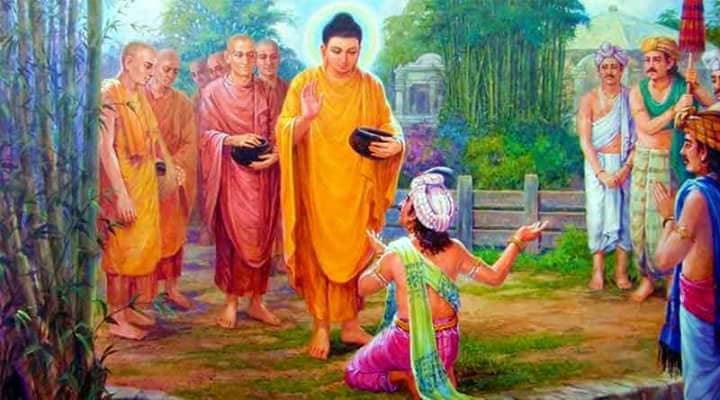
Politicians may have difficulty with Ajjaya, or Honesty. Joking aside, Buddha advises leaders and householders (lay followers) in very practical terms in many suttas. One perfect piece of advice, from the Adiya Sutta[2] is live your lay life and political life in such a way that you can honestly say:
“I have done what will not lead to future distress.”
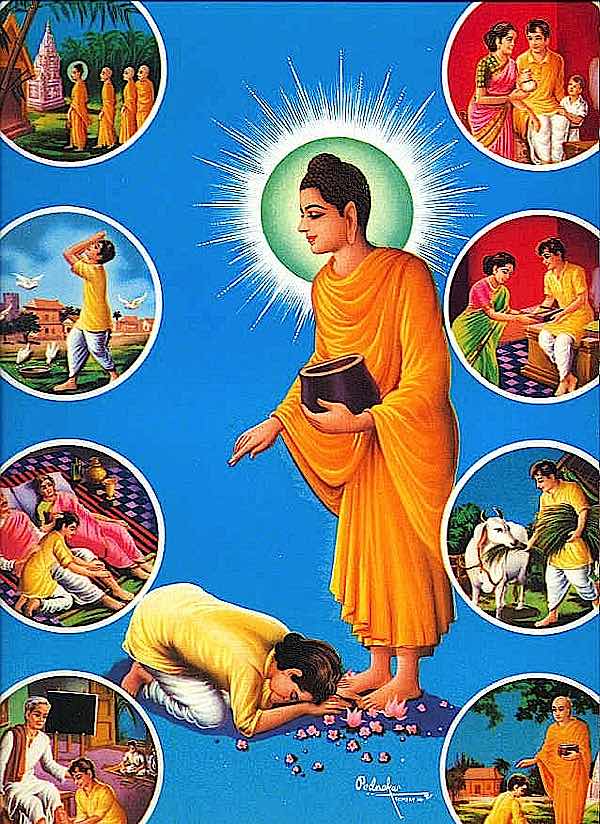
Buddha on Politics and Economics
According to one scholarly paper titled “Buddha on Politics, Economics and Statecraft”:
“While the primary purpose of Buddha’s teachings is the liberation of individuals from pervasive suffering, his teachings also acknowledge the interdependence of the individual with society, polity, and economy. Buddha’s teachings sought to mediate these relationships constructively. Although largely unknown in the West, Buddha was an original and important social, political, and economic philosopher, and a rationalistic, humanistic, and democratic one at that.”[1]
Tenfold Virtues of a Leader
In the Dasavidha-rājadhamma, Buddha teaches the Ten Virtues of a Political or Business Leader. Although it is difficult for a political leader, world leader or business leader to exemplify all ten of these virtues at all times, these are the ideals. If there was an ideal political leader, this is what that person would look like:
“Dānaŋ sīlaŋ pariccāgaŋ ājjavaŋ maddavaŋ tapaŋ akkodaŋ avihimsañca khantiñca avirodhanaŋ”
or
“Charity, Morlity, Altruism, Honesty, Gengleness, Self-Control, Non-Anger, Non-Violence, Patience and Uprightness.”
1) Dana or Charity: be liberal and avoid selfishness, be prepared to sacrifice your own pleasure for the well-being of society and others.
2) Sila or Morality: leaders must practice both physical and mental morals — and most importantly, be an example for others.
3) Pariccāga or Altruism: practicing generosity to all citizens or team members, avoiding selfishness.
4) Ajjava or Honesty: Buddha advises to perform one’s duties with loyalty and sincerity to others, and to be honest and maintain absolute integrity.
5) Maddava or Gentleness: leaders should have a gentle temperament, without arrogance, never defame others, and be kind and gentle,
6) Tapa or Self Control: performing duties without unruly passion or indolence and demonstrating a simple life as an example for others.
7) Akkodha or Non-Anger: Retaining equanimity, a calm mind, and being be free from anger or hatred of any kind,
8) Avihimsa or Non-Violence: exercise non-violence, and refrain from vengeance.
9) Khanti or Forbearance / Patience: practice patience, and
10) Avirodhana or Uprightness: respect public opinion in the interests of promoting peace and harmony and avoid prejudice or promoting public discord.
All good advice for our modern politicans, business leaders, community leaders, and ourselves.
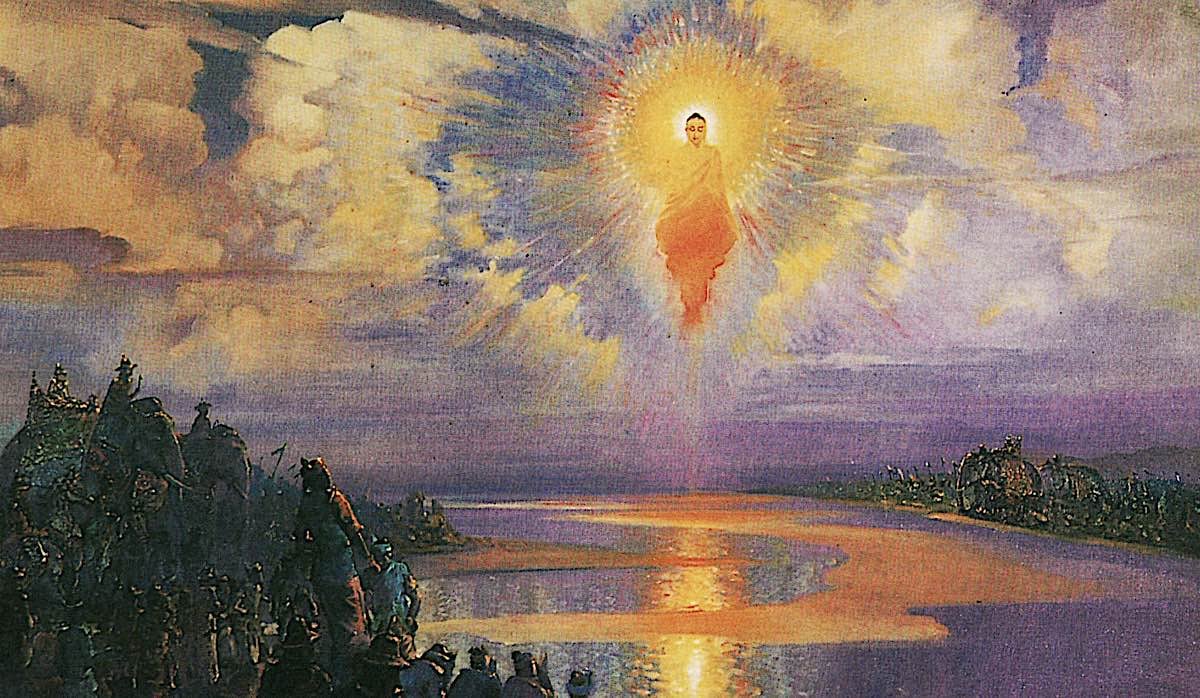
Buddha’s Precise Advice for Leaders
In the Cakkavatti Sihananda Sutta, he advised in very practical and precise terms:
“A good ruler should not harbor any form of hatred against any of his subjects.”
and
“A good ruler must possess a clear understanding of the law to be enforced. It should not be enforced just because the ruler has the authority to enforce the law. It must be done in a reasonable manner and with common sense.”
and
“A good ruler should act impartially and should not be biased and discriminate between one particular group of subjects against another.”
Buddha’s leadership advice is often highly practical — not surprising considering his upbringing as a prince. Before he became the Enlightened One, he was trained extensively in governing, martial arts and other skills by his father the King. Practicality is also thematic in Buddhist teachings. Buddha taught the middle way, without extremes.
Although clearly, Buddha’s teachings were not focused on politics and leadership, he was non-the-less a social reformer. Among other things, for his time, he was outspoken on the unfairness of the caste system, wealth distribution between the rich and poor, and he strongly advocated for the status of women in society.
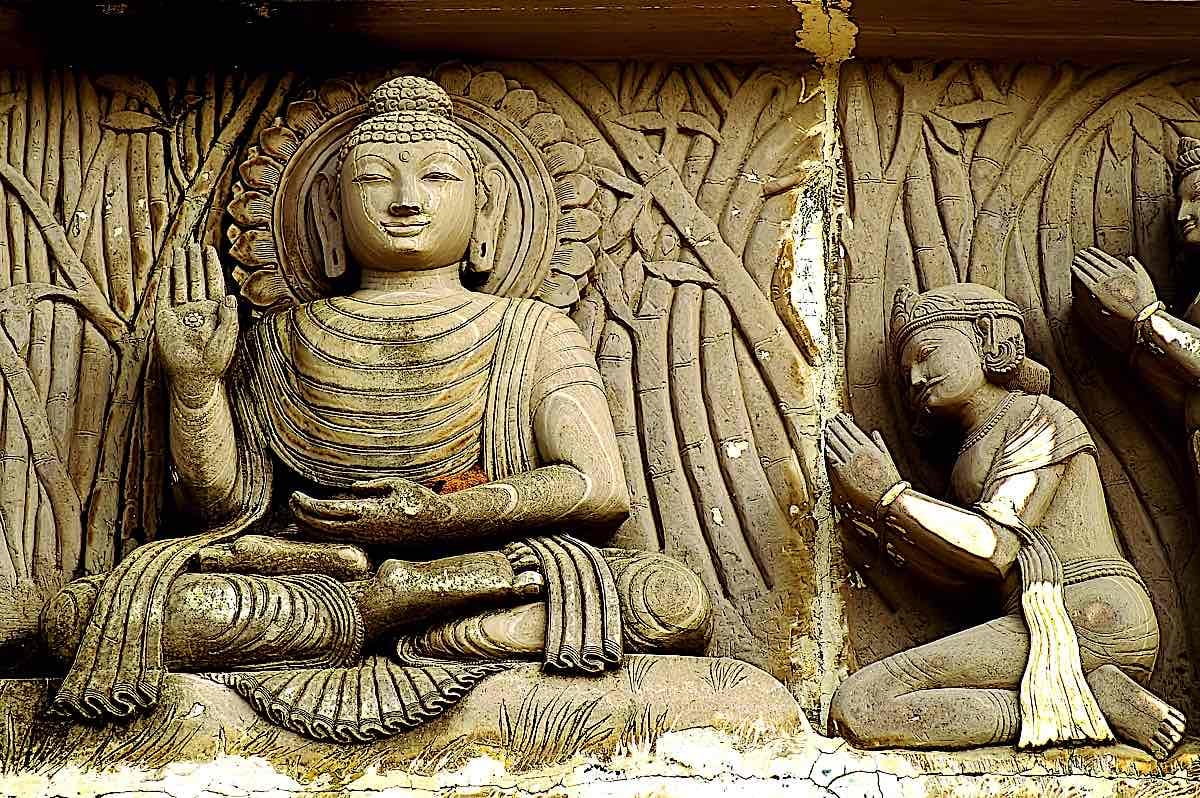
What leader in history exemplified the Buddhist ideal?
No leader is perfect. To uphold the greater good of society — or a business or company — inevitably involves some “negative karma.” To enforce civil may involve punishment. What leader, then exemplified the idea. The best known would be King Asoka, who in the Third Century B.C. was held up as the Buddhist Emperor. Although he began in violence and was certainly not perfect, he resolved to change and became a “Buddhist” King, following the tenfold virtues taught by a few hundred years prior. Venerable K. Sri Dhammananda Maha Thera wrote:
“Emperor Asoka, a sparkling example of this principle, resolved to live according to and preach the Dhamma and to serve his subjects and all humanity. He declared his non-aggressive intentions to his neighbors, assuring them of his goodwill and sending envoys to distant kings bearing his message of peace and non-aggression. He promoted the energetic practice of the socio-moral virtues of honesty, truthfulness, compassion, benevolence, non-violence, considerate behavior towards all, non-extravagance, non-acquisitiveness, and non-injury to animals. He encouraged religious freedom and mutual respect for each other’s creed. He went on periodic tours preaching the Dhamma to the rural people. He undertook works of public utility, such as founding of hospitals for men and animals, supplying of medicine, planting of roadside trees and groves, digging of wells, and construction of watering sheds and rest houses. He expressly forbade cruelty to animals.” [4]

Duty to Provide Material Security
Buddha’s advice in terms of economics is very practical. From the paper “Buddha on Politics, Economics and Statecraft”:
“Nonetheless, Buddha warned against ignoring physical needs and eschewing material pursuits, and recommended balanced progress in material and spiritual well-being—a so-called “Middle Way” between physically destructive asceticism and soul-crushing material indulgence as the way to happiness. The goal of Buddhist economics is to provide material security and economic stability for individuals and society and sustainable growth. The state must guarantee the physical needs of individuals in the form of the “four essentials”: food, clothing, shelter, and medicine, as these constitute the foundation for other pursuits such as moral development and the acquisition of wisdom….
…For the state, poverty is the primary threat to individual and societal advancement and providing sufficiency in the four material requisites for all is the first purpose of a political-economic system. Both the individual and the state have a duty to protect and promote the welfare of all citizens.” [3]
One example of a sutta with “pithy” advice for leaders was the Pabbatopama Sutta, the Simile of the Mountains.
Pabbatopama Sutta The Simile of the Mountains
Translated from the Pali by Thanissaro Bhikkhu
At Savatthi. Then King Pasenadi Kosala approached the Blessed One in the middle of the day and, on arrival, having bowed down, sat down to one side. As he was sitting there, the Blessed One said to him: “Well now, great king, where are you coming from in the middle of the day?”
“Just now, lord, I was engaged in the sort of royal affairs typical of head-anointed noble-warrior kings intoxicated with the intoxication of sovereignty, obsessed by greed for sensual pleasures, who have attained stable control in their country, and who rule having conquered a great sphere of territory on earth.”
“What do you think, great king? Suppose a man, trustworthy and reliable, were to come to you from the east and on arrival would say: ‘if it please your majesty, you should know that I come from the east. There I saw a great mountain, as high as the clouds, coming this way, crushing all living beings in its path. Do whatever you think should be done.’ Then a second man were to come to you from the west… Then a third man were to come to you from the north… Then a fourth man were to come to you from the south and on arrival would say: ‘If it please your majesty, you should know that I come from the south. There I saw a great mountain, as high as the clouds, coming this way, crushing all living beings. Do whatever you think should be done.’ If, your majesty, such a great peril should arise, such a terrible destruction of human life — the human state being so hard to obtain — what should be done?”
“If, lord, such a great peril should arise, such a terrible destruction of human life — the human state being so hard to obtain — what else should be done but Dhamma-conduct, right conduct, skillful deeds, meritorious deeds?”
“I inform you, great king, I announce to you, great king: aging and death are rolling in on you. When aging and death are rolling in on you, great king, what should be done?”
“As aging and death are rolling in on me, lord, what else should be done but Dhamma-conduct, right conduct, skillful deeds, meritorious deeds?
“There are, lord, elephant battles fought by head-anointed noble-warrior kings intoxicated with the intoxication of sovereignty, obsessed by greed for sensual pleasures, who have attained stable control in their country, and who rule having conquered a great sphere of territory on earth; but there is no use for those elephant battles, no scope for them, when aging and death are rolling in. There are cavalry battles… chariot battles… infantry battles… but there is no use for those infantry battles, no scope for them, when aging and death are rolling in. In this royal court there are counselors who, when the enemies arrive, are capable of dividing them by their wits; but there is no use for those battles of wits, no scope for them, when aging and death are rolling in. In this royal court there is abundant bullion and gold stored in vaults and depositories, and with such wealth we are capable of buying off enemies when they come; but there is no use for those battles of wealth, no scope for them, when aging and death are rolling in. As aging and death are rolling in on me, lord, what else should be done but Dhamma-conduct, right conduct, skillful deeds, meritorious deeds?”
“So it is, great king! So it is, great king! As aging and death are rolling in on you, what else should be done but Dhamma- conduct, right conduct, skillful deeds, meritorious deeds?”
That is what the Blessed One said. Having said that, the One Well-Gone, the Teacher, further said this:
Like massive boulders,
mountains pressing against the sky, moving in from all sides,
crushing the four directions,
so aging and death
come rolling over living beings: noble warriors, priests, merchants, workers, outcastes, and scavengers. They spare nothing.
They trample everything.
Here elephant troops can hold no ground, nor can chariots or infantry,
nor can a battle of wits
or wealth win out.
So a wise person,
seeing his own good,
steadfast, secures confidence
in the Buddha, Dhamma, and Sangha.
One who practices the Dhamma in thought, word, and deed, receives praise here on earth
and after death rejoices in heaven.
NOTES
[1] Ling, Trevor. 1981. The Buddha’s Philosophy of Man: Early Indian Buddhist Dialogues. Rutland, VT: Everyman.
[2] Adiya Sutta. Full Sutta in our previous feature>>
[3] Buddha on Politics, Economics and Statecraft>>
[4] “Buddhism and Politics” by Venerable K. Sri Dhammananda Maha Thera>>
More articles by this author
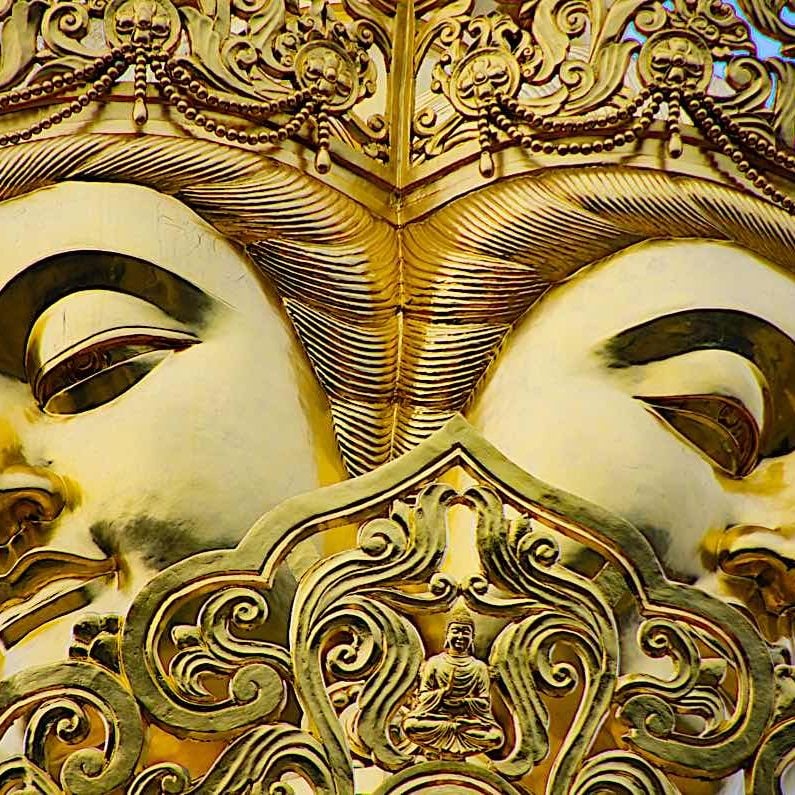
Samantabhadra’s The King of Prayers is the ultimate Buddhist practice how-to and itself a complete practice
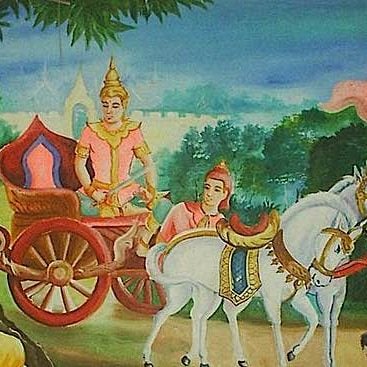
The Five Strengths and Powers or pañcabalā in Buddhism — the qualities conducive to Enlightenment: faith, energy, mindfulness, concentration and wisdom

Tara’s Great Dharani Supreme of all Mantras –with Music version– and the Sutra of Tara Who Protects from the Eight Fears: in Tara’s Own Words
Search
Latest Features
Please support the "Spread the Dharma" mission as one of our heroic Dharma Supporting Members, or with a one-time donation.
Please Help Support the “Spread the Dharma” Mission!

Be a part of the noble mission as a supporting member or a patron, or a volunteer contributor of content.
The power of Dharma to help sentient beings, in part, lies in ensuring access to Buddha’s precious Dharma — the mission of Buddha Weekly. We can’t do it without you!
A non-profit association since 2007, Buddha Weekly published many feature articles, videos, and, podcasts. Please consider supporting the mission to preserve and “Spread the Dharma." Your support as either a patron or a supporting member helps defray the high costs of producing quality Dharma content. Thank you! Learn more here, or become one of our super karma heroes on Patreon.
Lee Kane
Author | Buddha Weekly
Lee Kane is the editor of Buddha Weekly, since 2007. His main focuses as a writer are mindfulness techniques, meditation, Dharma and Sutra commentaries, Buddhist practices, international perspectives and traditions, Vajrayana, Mahayana, Zen. He also covers various events.
Lee also contributes as a writer to various other online magazines and blogs.















